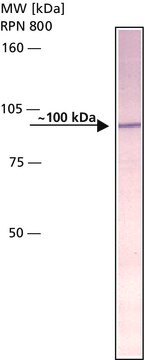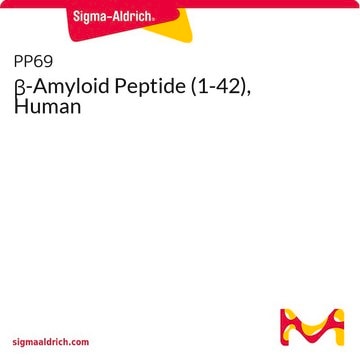S4316
Amyloid Precursor Protein β, Secreted human
recombinant, expressed in E. coli (N-terminal histidine tagged), solution
Sinónimos:
Amyloid Precursor Protein β, Secreted, sAPPβ
Seleccione un Tamaño
631,00 €
Seleccione un Tamaño
About This Item
631,00 €
Productos recomendados
Descripción general
Acciones bioquímicas o fisiológicas
Forma física
Nota de preparación
Código de clase de almacenamiento
10 - Combustible liquids
Clase de riesgo para el agua (WGK)
WGK 1
Punto de inflamabilidad (°F)
Not applicable
Punto de inflamabilidad (°C)
Not applicable
Equipo de protección personal
Eyeshields, Gloves, multi-purpose combination respirator cartridge (US)
Elija entre una de las versiones más recientes:
Certificados de análisis (COA)
¿No ve la versión correcta?
Si necesita una versión concreta, puede buscar un certificado específico por el número de lote.
¿Ya tiene este producto?
Encuentre la documentación para los productos que ha comprado recientemente en la Biblioteca de documentos.
Filtros activos
Nuestro equipo de científicos tiene experiencia en todas las áreas de investigación: Ciencias de la vida, Ciencia de los materiales, Síntesis química, Cromatografía, Analítica y muchas otras.
Póngase en contacto con el Servicio técnico








